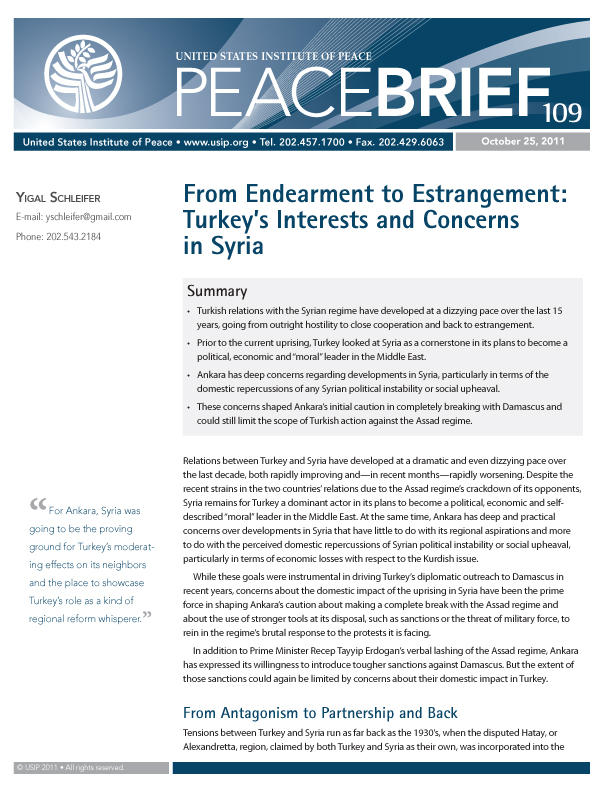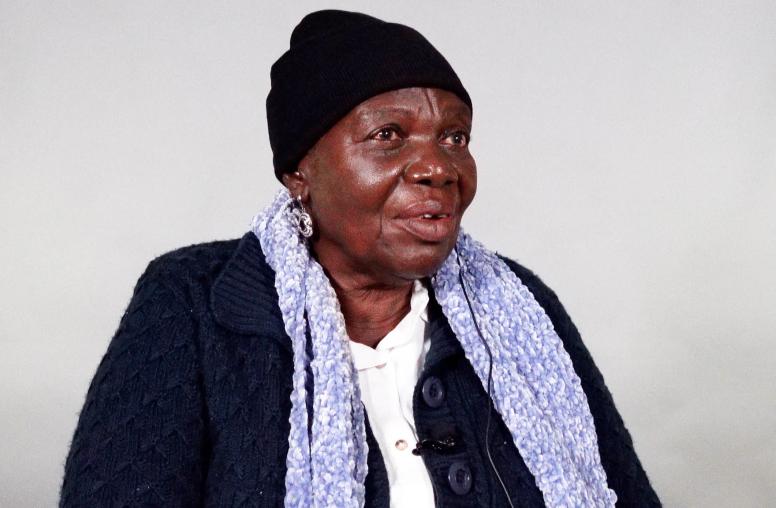From Endearment to Estrangement: Turkey’s Interests and Concerns in Syria
This brief is part of a series examining the regional dimensions of Syria’s popular uprising. The Institute invited leading experts from the U.S. and the Middle East to identify key vectors of influence Syria’s neighbors are bringing to bear on the conflict, to forecast how the situation there will affect the regional balance of power and to examine how the opposition and the Syria regime are responding to these regional dynamics. This study on Turkey was written by Yigal Schleifer, a Washington-based journalist and analyst covering Turkey.

Summary
- Turkish relations with the Syrian regime have developed at a dizzying pace over the last 15 years, going from outright hostility to close cooperation and back to estrangement.
- Prior to the current uprising, Turkey looked at Syria as a cornerstone in its plans to become a political, economic and “moral” leader in the Middle East.
- Ankara has deep concerns regarding developments in Syria, particularly in terms of the domestic repercussions of any Syrian political instability or social upheaval.
- These concerns shaped Ankara’s initial caution in completely breaking with Damascus and could still limit the scope of Turkish action against the Assad regime.
About This Brief
This brief is part of a series examining the regional dimensions of Syria’s popular uprising. The Institute invited leading experts from the U.S. and the Middle East to identify key vectors of influence Syria’s neighbors are bringing to bear on the conflict, to forecast how the situation there will affect the regional balance of power and to examine how the opposition and the Syria regime are responding to these regional dynamics. Through this series the Institute aims to provide analysis and tools for on-the-ground conflict management in support of political transitions across the Arab world. The series was edited by USIP’s Steven Heydemann, senior adviser for Middle East Initiatives, and Scott Lasensky, a senior program officer.
This study on Turkey was written by Yigal Schleifer, a Washington-based journalist and analyst covering Turkey. He was based in Istanbul between 2002 and 2010 as a correspondent for the The Christian Science Monitor and Eurasianet.org. He is also the author of “Istanbul Calling”, a blog about Turkish foreign and domestic affairs.
Explore Further
- Turmoil in Syria: Reshaping the Middle East?
USIP publishes a series of briefs on how the Syrian uprising is affecting the regional neighborhood



